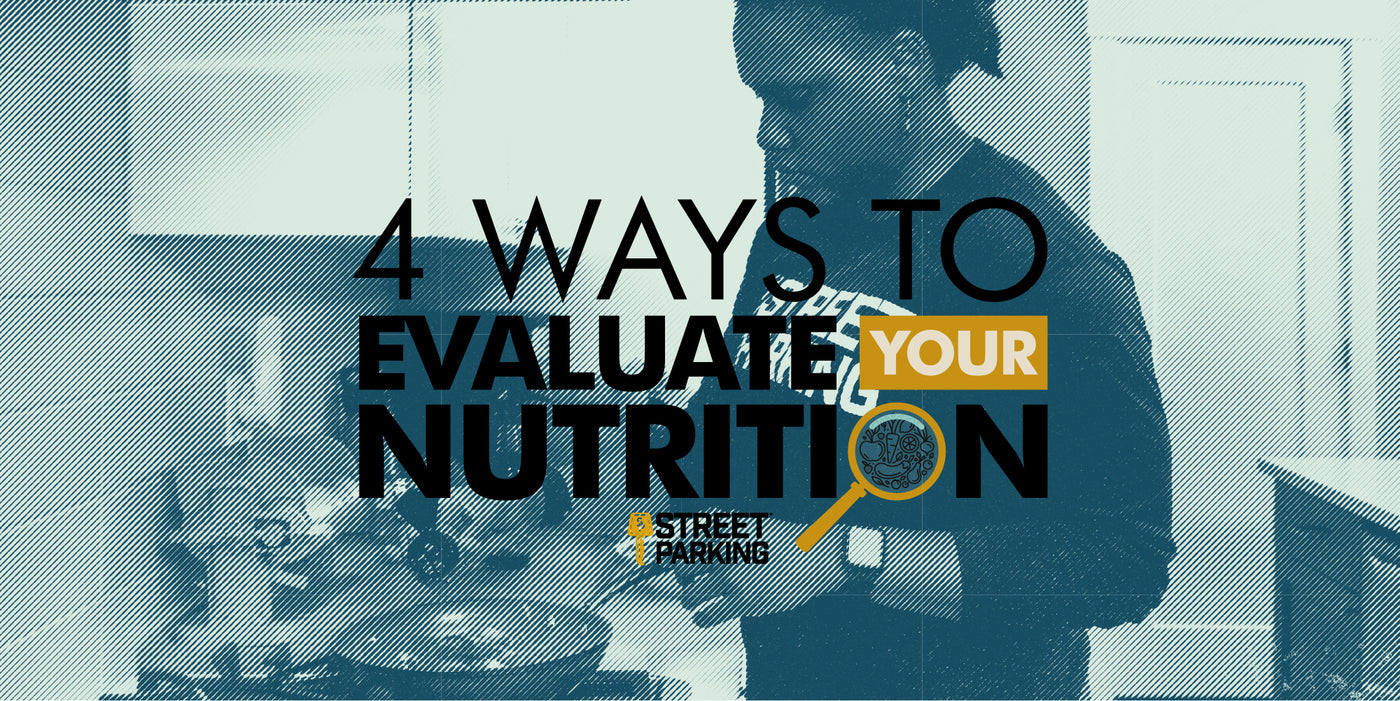
When it comes to reaching our health and fitness goals, workouts are only a part of the equation. If you truly want optimal and sustainable results you have to take a look at what you are doing in the kitchen…(or ordering from the delivery driver).
There is nothing quite as confusing, frustrating, or overwhelming as trying to figure out which “diet” is right for you. For your goals. Your genetics. Your body type. Food preferences. Schedule. The list goes on.
The fitness industry and/or “diet culture” has done quite a bang up job of making us feel that if only we could find our magic meal plan then we would FINALLY have the results we’ve been searching for, our nutritional “holy grail”.
Before we dive into the Street Parking recommendations for nutrition, we thought it would be helpful to arm you with a series of 4 questions you can ask yourself about ANY diet or nutritional approach, to evaluate if it’s right for you at EVERY level (read that as…not just if it will “work” in the short term).
Use this little quiz next time you are interested in starting something new or to evaluate what you are currently doing.
These questions aren’t in any particular order, and none of them are more important than the others. All 4 matter.
Question #1:
How does this nutritional approach impact my body composition?
When we talk about body composition we are talking about the breakdown of your overall body weight by how much of it is fat tissue vs everything else (lean body mass). Your body composition will determine SO MUCH MORE in terms of your health, the way you look, and your performance than other measures like BMI or even your scale weight could ever dream to.
Your nutrition plan then, should provide positive changes (or if you are already where you want to be, then maintenance) in this area. Positive changes look like muscle gain, fat loss, or (if necessary for some populations) even healthy fat gain.
To see these positive changes, or to maintain a healthy body composition, CALORIES DO MATTER but the ratio of protein, carbs, and fat also plays a huge role!
It’s important to remember that we can lose WEIGHT without losing FAT. Not properly fueling can lead to lost muscle mass, which will turn around to bite us by lowering the amount of calories we are expending in workouts and even when we are at rest. Just because the number on the scale is going down, it DOESN’T always mean what we hope it means.
Question #2
How does this nutritional approach impact my overall HEALTH?
If you ask us, your health should be a HUGE factor when deciding what foods and the quantities of those foods we consume. Unfortunately, this thought process is completely missing from MANY popular meal plans and “diets” which focus simply on aesthetics.
You CAN control body composition by balancing cereal and beef jerky in the necessary caloric load for your body and activity level. It’s true. You can get “shredded” drinking protein shakes, eating chewy protein bars, and taking the latest fat burn pills.
But are those products providing the NUTRIENTS – vitamins, minerals, healthy fats, etc. – for optimal health? Are these the foods our bodies are designed to eat?
Just like the workouts, what we eat is about SO MUCH MORE than how it makes us look in swimsuit or what size jeans we wear. What so many of us are after, at the end of the day, is to FEEL better. Vitamin and mineral deficiencies, feeling hungry all of the time, and other side effects of many fad “weight loss diets” may trim our waistlines all while making us feel like garbage.
Question #3
How does this nutritional approach impact my performance?
Performance in sport or workouts can lead to better overall results, but it doesn’t end there. How do you feel at work? On a hike? Or playing with your kids?
How’s your focus? Your sleep? Your overall mood?
When we have a nice balance of protein, carbs, and fat in portions that are the right size for our body and our activity level, we should see pretty even energy levels throughout the day. We shouldn’t feel a “crash” in workouts or need to reach for a 5 Hour Energy at 2pm every day to make it through the last few hours of work. (Keeping in mind that stress and sleep will play a role here as well.)
Nutrition - both quantity and quality of food - has a HUGE impact on our hormone levels and energy levels which impact every moment of our day, not just our training.
Question #4
Is this nutritional approach sustainable?
Can I keep this up forever? Do I even plan to keep this up forever?
If the answer is“no”, ask yourself if this approach COULD be sustainable, but you just need smaller steps - OR - if it’s so drastic that it’s not meant to be sustained. Is the “diet” you are contemplating MEANT to be a temporary “cleanse”, “jumpstart”, or “cut”?
We KNOW that a BIG change - even one that is meant to be temporary - sounds very appealing. Typically when we are at the point where we are considering making changes to our diet we are ready to do “whatever it takes”.
The problem?
These drastic dietary approaches aren’t meant to be sustained for the long haul and therefore neither are their drastic results.
And just like it can be tempting to jump on board a fitness program that requires you to spend hours a day in the gym, we also see so many fall into the trap of either lowering their calorie intake to something that will ultimately leave them way too hungry, or making food choices that aren’t realistic, only to see results for a few weeks but ultimately throw in the towel.
Finding an approach that is sustainable for YOUR WHOLE LIFE is key to your success long term and your ability to maintain the results from improving your eating habits. And keep in mind that what is sustainable for YOU is not the same as what is sustainable for someone else.
Your current life stage, schedule, food preferences and availability, will all play a role in what you find you are able to sustain. And this will change throughout your life!
However, don’t assume that eating healthy needs to be complicated, expensive, or time consuming. In fact, the opposite is true and with an approach of making small - SIMPLE changes over time - something you thought might not be sustainable can become a daily habit.


